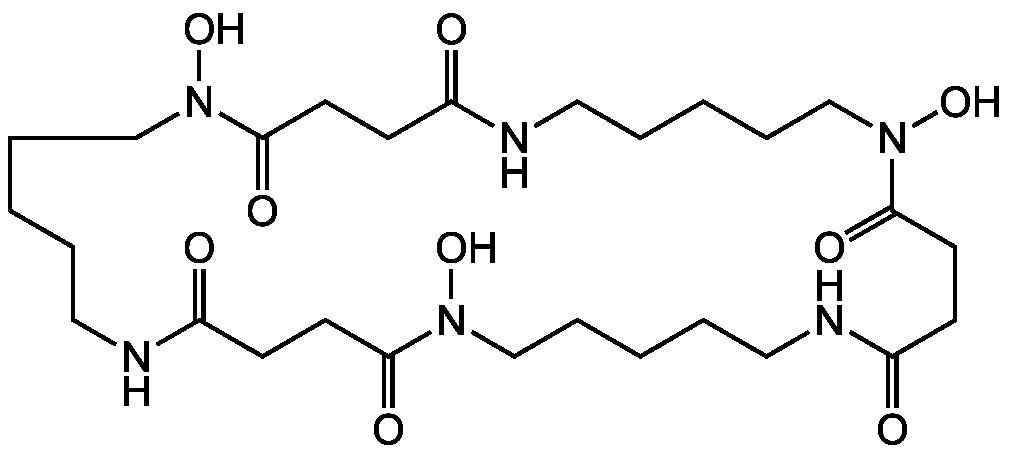
Chemical Structure
Nocardamine [26605-16-3] [26605-16-3]
AG-CN2-0150
CAS Number26605-16-3
Product group Chemicals
Estimated Purity>95%
Molecular Weight600.7
Overview
- SupplierAdipoGen Life Sciences
- Product NameNocardamine [26605-16-3] [26605-16-3]
- Delivery Days Customer10
- CAS Number26605-16-3
- CertificationResearch Use Only
- Estimated Purity>95%
- Molecular FormulaC27H48N6O9
- Molecular Weight600.7
- Scientific DescriptionAntibiotic [1, 6]. Anti-mycobacterial [7]. Siderophore (iron (Fe) chelating compound) [5, 8]. Inducer of morphological changes in insect cells [3]. Antioxidant [4]. Anticancer compound [2, 8]. - Chemical. CAS: 26605-16-3. Formula: C27H48N6O9. MW: 600.7. Isolated from Streptomyces sp. K04-0144. Antibiotic. Anti-mycobacterial. Siderophore (iron (Fe) chelating compound). Inducer of morphological changes in insect cells. Antioxidant. Anticancer compound.
- SMILESON1CCCCCNC(=O)CCC(=O)N(O)CCCCCNC(=O)CCC(=O)N(O)CCCCCNC(=O)CCC1=O
- Storage Instruction-20°C,2°C to 8°C
- UNSPSC12352200

![Nocardamine [26605-16-3] [26605-16-3]](https://www.targetmol.com/group3/M00/37/FC/CgoaEWayVMyEQYZDAAAAALM2hTU702.png)